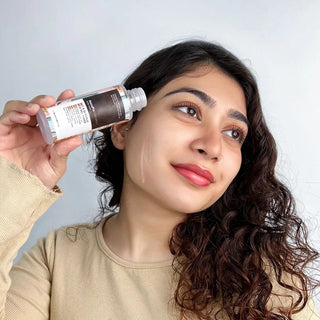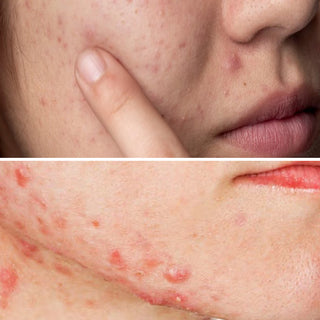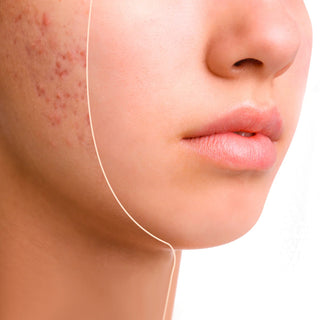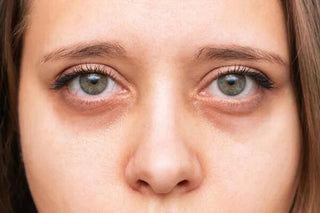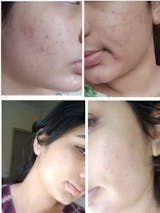When it comes to skincare, finding products that are both affordable and effective can be challenging. For those in Pakistan looking to combat acne and achieve clearer skin, well-formulated salicylic acid serums can be a fantastic choice. This article will discuss salicylic acid, and its benefits, and also identify the best salicylic acid serum in Pakistan.
What is Salicylic Acid?
Salicylic acid, is a beta hydroxy acid (BHA), is renowned for its ability to exfoliate the skin and clear pores, making it a popular ingredient in acne treatments. Unlike alpha hydroxy acids (AHAs), which are water-soluble, BHAs are oil-soluble, allowing them to penetrate deeper into the pores. This unique property makes salicylic acid highly effective in treating blackheads, whiteheads, and other forms of acne.
Are Salicylic Acid and BHA the Same?
Yes, salicylic acid is a type of BHA. The terms are often used interchangeably in skincare since salicylic acid is the only BHA used in skincare.
How Does Salicylic Acid Work?
Salicylic acid works by:
Exfoliating the Skin: It sloughs off dead skin cells, promoting cell turnover and revealing fresher skin beneath.
Penetrating Pores: Its oil-soluble nature allows it to go deep into the pores, dissolving excess sebum and dead skin cells that clog pores and cause acne.
Reducing Inflammation: Salicylic acid has anti-inflammatory properties that help to reduce redness and swelling associated with acne.
Killing bacteria: Salicylic acid has antimicrobial properties that help reduce acne by killing bacteria on the skin and preventing the growth of new bacteria, which can lead to fewer breakouts and clearer skin.
What Does Salicylic Acid Do?
In addition to treating acne, salicylic acid offers several other skincare benefits:
Minimizes Pores: Salicylic acid helps clean pores, which means that regular use can improve the appearance of enlarged pores.
Improves Skin Texture: By exfoliating the skin, it leaves it smoother and more even.
Reduces Sebum Production: It helps control oil production, making it beneficial for those with oily skin.
Prevents Future Breakouts: By keeping pores clear, it reduces the likelihood of future acne.
Can Salicylic Acid Cause Acne?
While salicylic acid is designed to treat acne, it can sometimes cause a phenomenon known as "purging." This occurs when the ingredient accelerates the turnover of skin cells, bringing underlying comedones to the surface. Purging typically lasts a few weeks and is a sign that the product is working. However, if breakouts persist beyond this period, it might be a sign of irritation, and discontinuing use may be necessary.
Best Salicylic Acid Serum in Pakistan
Finding the best salicylic acid serum in Pakistan involves considering factors like formulation, concentration, and price.
AccuFix Salicylic Acid Serum, is a revolutionary skincare product designed to tackle the toughest acne and skin texture challenges. It contains a carefully crafted blend of potent ingredients to deliver visible results for a clearer, more radiant complexion.
At the heart of our Salicylic Acid Serum is a powerful combination of 1.5% salicylic acid and glycolic acid, known for their exceptional abilities to fight acne and exfoliate the skin. Salicylic acid, or BHA (beta hydroxy acid), works diligently to unclog pores, reduce inflammation, and combat acne-causing bacteria and fungi. Glycolic acid complements this by removing dead skin cells from the surface, revealing brighter, healthier skin beneath.
In addition, our serum is also enriched with hydrating and skin-soothing ingredients including urea carbamide, colloidal oats, and panthenol. These components hydrate and soothe the skin, helping to offset the potential irritation sometimes associated with chemical exfoliants. The result is a unique emulsion that not only battles acne and fungal acne but also promotes a smoother, more even skin tone and texture.
With consistent and proper use as part of skincare routine designed specifically to address your skin type and concerns, you can expect to see a visible transformation in your skin within just 4 to 6 weeks. Whether you're dealing with pimples, blackheads, whiteheads, or simply seeking a radiant, even complexion, our Salicylic Acid Serum is your go-to solution.
How to Use Salicylic Acid Serum
Cleanse: Start with a gentle cleanser to remove any dirt or makeup.
Apply Serum: Use a few drops of the AccuFix Salicylic Acid Serum on dry skin, focusing on areas prone to acne. If your skin is sensitive you can apply moisturizer first and then follow up with the serum. Start by using this product 2-3 times per week and slowly build up to once daily use only if your skin is able to tolerate it.
Moisturize: Follow up with a lightweight, non-comedogenic moisturizer to prevent dryness.
Sun Protection: Always finish your morning skincare routine with a broad-spectrum sunscreen.
Conclusion
Choosing the best salicylic acid serum in Pakistan involves understanding your skin's needs and selecting a product that fits your budget. Salicylic acid is a powerful ingredient that can help achieve clearer, smoother skin when used correctly. Always patch test new products and consult with a dermatologist if you have any concerns about using salicylic acid.
By incorporating a high-quality salicylic acid serum into your skincare routine, you can effectively manage acne and enjoy healthier, more radiant skin.

